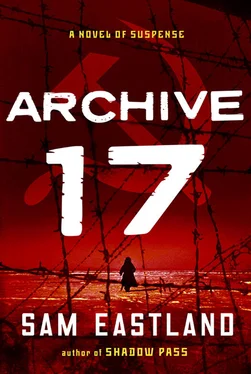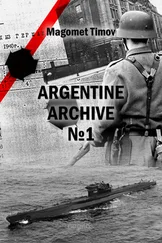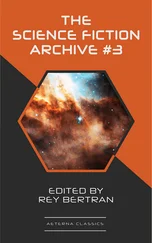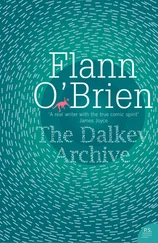Sam Eastland - Archive 17
Здесь есть возможность читать онлайн «Sam Eastland - Archive 17» весь текст электронной книги совершенно бесплатно (целиком полную версию без сокращений). В некоторых случаях можно слушать аудио, скачать через торрент в формате fb2 и присутствует краткое содержание. Жанр: Исторический детектив, на английском языке. Описание произведения, (предисловие) а так же отзывы посетителей доступны на портале библиотеки ЛибКат.
- Название:Archive 17
- Автор:
- Жанр:
- Год:неизвестен
- ISBN:нет данных
- Рейтинг книги:3 / 5. Голосов: 1
-
Избранное:Добавить в избранное
- Отзывы:
-
Ваша оценка:
- 60
- 1
- 2
- 3
- 4
- 5
Archive 17: краткое содержание, описание и аннотация
Предлагаем к чтению аннотацию, описание, краткое содержание или предисловие (зависит от того, что написал сам автор книги «Archive 17»). Если вы не нашли необходимую информацию о книге — напишите в комментариях, мы постараемся отыскать её.
Archive 17 — читать онлайн бесплатно полную книгу (весь текст) целиком
Ниже представлен текст книги, разбитый по страницам. Система сохранения места последней прочитанной страницы, позволяет с удобством читать онлайн бесплатно книгу «Archive 17», без необходимости каждый раз заново искать на чём Вы остановились. Поставьте закладку, и сможете в любой момент перейти на страницу, на которой закончили чтение.
Интервал:
Закладка:
Lavrenov picked up the story. “We made the decision to hide the Imperial Reserves in Kazan. The Czech Legion was behind us, but moving along the same route and heading in the same direction. They were a much stronger force than our own, over thirty thousand men. If only we could have linked up with them, we would have been safe from the Reds, but the Reds had positioned themselves between our two forces. If we had stayed where we were and waited for the Czechs to catch up with us, the Reds would have finished us off long before the Czechs arrived to help. We managed to get word through to the Czechs about where the gold was hidden and they picked it up when they passed through Kazan.”
“You say they didn’t have it all. What happened? Did you spend it along the way?”
“Some of it,” admitted Tarnowski. “At almost every town we came to, the locals demanded bribes or tried to overcharge us for food or feed for our horses. We had used up three crates of gold by the time Colonel Kolchak declared that from then on, we would simply take what we wanted. But those three cases were only a fraction of what was missing from the Imperial Reserves that the Czechs handed over at Irkutsk.”
“You mean they just left the rest of the gold behind in Kazan? Is that it?”
Tarnowski shook his head. “What happened was that at the last minute the colonel decided we should take some of the gold with us. His uncle was expecting that gold and Kolchak was afraid to come to him empty-handed. We were moving more quickly when we pulled out of Kazan, but still not quickly enough. The Reds caught up with us. What happened after that was a slaughter.”
“But how did you manage to prevent them from capturing it?” asked Pekkala.
“When we realized the Reds were only a day or two behind us,” continued Lavrenov, “we sent Colonel Kolchak on ahead. At first he did not want to go, but we knew what would happen if the Bolsheviks got hold of him. We begged the colonel to save himself, and finally he agreed.”
“Before he left,” said Sedov, “he swore that he would not abandon us, and in return each man who stayed behind took an oath that we would never give up the location of the gold. That night, once we were sure that the colonel had gotten away safely, we buried the crates in the woods beside the railroad, not two days’ march from this camp.”
“How can you be certain it’s still there?”
“If it had been found,” replied Lavrenov, “word would have reached us by now.”
Pekkala realized he was right. If that gold had been discovered, Stalin would have made sure that the whole country knew about his final triumph over the Tsar. He also knew the area where the Comitati had buried those crates. It was as wild and inhospitable a place as any he had seen. Once the gold was underground, no one would have stumbled upon it by accident, even if trains passed by not more than a stone’s throw away.
During his years as a tree-marker in the Valley of Krasnagolyana, the railroad had marked the northern boundary of the Borodok timber-cutting region. Beyond it lay a region assigned to another camp, a notorious place called Mamlin-3, where experiments were conducted on human subjects. To be caught outside this region meant certain death.
If the wind was right, Pekkala could hear the sound of the Trans-Siberian Express passing through the forest. Sometimes, overcome by loneliness, he would trudge through the woods on his homemade snowshoes until he reached the tracks. There, standing at the edge of his world, he waited for the train to go by, just to catch a glimpse of another human being.
The railway guards aboard the train would shoot at Pekkala if they saw him, whether on orders or for sport he did not know, so he always stayed hidden, eyes fixed on the stuttering images of passengers staring bleary-eyed out at the impenetrable wilderness of Siberia, unaware that the wilderness was staring back at them.
“The next day,” said Tarnowski, “the Reds attacked. The battle took place almost within sight of this valley. We held out for three days, but they outnumbered us by four to one. We knew we couldn’t win, but still we made them pay for every inch of ground. By the time it was over, of the two hundred men in the expedition, there were only seventy of us left. The Reds marched us straight to Borodok and we have been here ever since. Since the Bolsheviks found no gold, they concluded that we must have left it all with the Czechs.”
“And now your idea is to reclaim it?”
“Exactly,” replied Sedov.
“But this time,” said Lavrenov, “we are keeping it for ourselves.”
“That gold belongs to us now,” muttered Sedov. “God knows, we have earned it.”
“A hundred times over,” agreed Lavrenov.
“Where will you go once you’ve escaped,” asked Pekkala, “assuming you can even make it through the gates alive?”
“The border with China isn’t far from here,” Sedov told him. “Once we cross over, we’ll be safe.”
“But until then, you’ll be in the country of the Ostyaks. How do you plan to get past them when no other prisoner has ever succeeded before?”
“The colonel will take care of us,” Sedov answered. “We have waited many years, but at last the day of our deliverance is near.”
“Are you insane?” stammered Pekkala. “Now, listen to me, for the sake of your lives. I admire your loyalty to Colonel Kolchak. No one could have asked from you more than you have already given. But that loyalty has not been repaid. The colonel is gone. He has been gone for a long time. Even if he’s still alive, a fact of which I am by no means certain, whatever special powers you have granted him will not persuade the Ostyaks. Those men out there will kill you. They do not care about your faith, in God or anyone else. They care about the bread and salt Klenovkin gives them in exchange for your frozen corpses.”
Sedov only smiled and shook his head.
“Soon you’ll understand,” said Lavrenov. “Just wait until you set eyes on the gold.”
“I already have,” said Pekkala.
It was a Sunday afternoon in August .
Pekkala had been sitting at his kitchen table, trying to read the newspaper. On either side of him lay large bowls filled with ice. In spite of this effort to cool himself down, he was still drenched in sweat. The newspaper stuck to his damp fingers. The ticking of the clock in the next room, which under normal circumstances he only noticed if it stopped, now seemed to be growing louder, as if a woodpecker was tapping against his skull .
At the moment when it seemed as if his mood could not get any worse, he received a summons to the Alexander Palace. The message was delivered by a horseman from the Royal Stables. Dressed in a white tunic with red piped collar and cuffs, the rider appeared so dazzling in the glare of sun off the crushed stone pathway that Pekkala wondered if he might be hallucinating .
The summons caught Pekkala by surprise, since he had thought the Romanovs were away at their hunting lodge in Poland until the end of the following week. They seemed to have perfectly anticipated the heat wave, which had clamped down on St. Petersburg less than a day after the royal train departed for the west .
“The royal family has returned from Spala?” he asked the horseman .
“Only the Tsar. He came back early.”
“Any idea what this is about?”
The man shook his head, then saluted and rode away. Horse and rider seemed to merge in the heat haze, until they appeared to have transformed into a single creature .
Pekkala did not keep a horse, nor did he own a car or even a bicycle, so he walked to the Alexander Palace. The route took him along the edge of Alexander Park. There was no shade along this stretch, since the trees originally planted here obscured the Tsarina’s view of the park from the room where she took breakfast every morning, so she’d had them all cut down .
Читать дальшеИнтервал:
Закладка:
Похожие книги на «Archive 17»
Представляем Вашему вниманию похожие книги на «Archive 17» списком для выбора. Мы отобрали схожую по названию и смыслу литературу в надежде предоставить читателям больше вариантов отыскать новые, интересные, ещё непрочитанные произведения.
Обсуждение, отзывы о книге «Archive 17» и просто собственные мнения читателей. Оставьте ваши комментарии, напишите, что Вы думаете о произведении, его смысле или главных героях. Укажите что конкретно понравилось, а что нет, и почему Вы так считаете.











